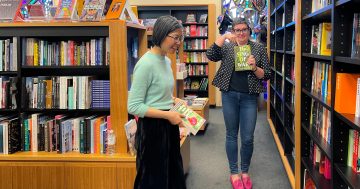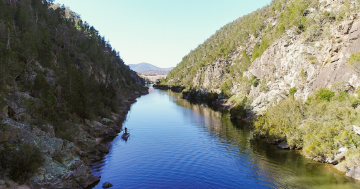
Do ordinary Canberrans object to being classified as part of the bubble that hovers over Parliament House? File photo.
If you’re an ordinary Canberra citizen, paying your taxes and going about your (possibly private sector) business, you might justifiably be a bit narked by the ANU Dictionary Centre’s word of the year. It’s “Canberra Bubble”, a phrase thrown around with enthusiasm by politicians who are eager to win votes back home by signalling that they’re straightforward decent people, not hopelessly mired in political manipulation.
The trouble is, of course, that most average Canberrans aren’t consumed by Machiavellian plotting either, being far too busy at this time of the year wondering what to get Nanna for Christmas and whether they’ve bought the right sized turkey. Just like the rest of the country.
The ANU’s Dictionary Centre is responsible for coming up with the word or phrase that describes the nation and its mood, and Dr Amanada Laugesen admits that it’s been slightly testing to discuss this one with local media.
“Canberra bubble is an example of using Canberra to refer to the Australian government and its bureaucracy. There’s some strong local sentiment that we wish people would stop using Canberra in this way because of negative connotations around the city,” she says.
As Dr Laugesen points out, most of the politicians are essentially fly-in, fly-out workers who are using the “Canberra bubble” phrase to distance themselves from something they have created and participate in actively.
The first traceable use of the phrase comes from the Gold Coast Bulletin in 2001, which used it in a headline. “The story was about John Howard and Kim Beazley travelling around Queensland with a retinue of advisers and journalists,” Laugesen says. “The headline was that life was great inside a Canberra bubble, but the inference was that these people were bumping around Queensland in their own little bubbles, not interacting with the locals.”
But in 2018, politicians took up the term to distance themselves from perceptions about the national capital and attack each other. Prime Minister Scott Morrison’s usage to describe his politics brought the phrase to the Centre’s attention, although plenty of critics have pointed out that the PM pretty much defines the centre of the Canberra bubble.
All of which is of little use to locals who are numerically more under-represented in Federal parliament than anyone else in the country. The next election will take our Federal representation to a grand total of five, with a local government complement of 25. Our reliably safe Labor seats also don’t prompt much electoral largesse.
By contrast, Tasmania’s slightly larger population is represented by 12 senators, six MPs, an upper and lower house of State parliament and 29 local Councils.
“Well, it’s no secret that there are no votes here in Canberra,” Dr Laugesen says. “When I spoke to ABC Sydney and other media about this, their focus is very much about the federal political debates recently. People are not that interested in what Canberrans think.”
The shortlist for this year’s word of the year included: bag rage – ‘anger provoked in a customer by the removal of free plastic bags at the checkout’; blockchain – ‘a system in which records are maintained across several computers that are linked in a peer-to-peer network, used especially for cryptocurrency transactions’; drought relief – ‘financial or practical assistance given to those in special need or difficulty due to severe drought conditions’; fair dinkum power – ‘dispatchable energy; coal, as contrasted with renewable sources of energy’; NEG – ‘National Energy Guarantee; a regulatory obligation imposed on energy companies to provide a reliable supply of energy while meeting emissions reduction targets’.
Original Article published by Genevieve Jacobs on the RiotACT.









